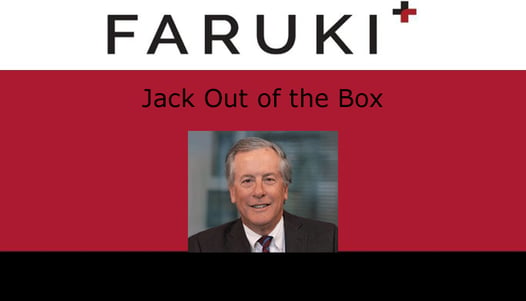- July 6, 2023
- Jack Greiner
- Jack Out of the Box
 A Walt Disney Company shareholder's suit to obtain corporate records failed recently when a Delaware Court concluded that the shareholder was advancing another party's political agenda. The court also found that Disney did not engage in mismanagement sufficient to trigger the action.
A Walt Disney Company shareholder's suit to obtain corporate records failed recently when a Delaware Court concluded that the shareholder was advancing another party's political agenda. The court also found that Disney did not engage in mismanagement sufficient to trigger the action.
The case arose when a shareholder named Kenneth Simeone sued Disney to obtain certain business records. The basis for the suit was that Disney's directors and officers allegedly violated their corporate fiduciary duties by opposing Florida HB 1557 – also known as the "don't say gay" bill.
When HB 1557 was first passed, Disney took no public position on the bill. Disney's then CEO, Robert Capek, did circulate an internal memo expressing support for the LGBTQ community, but Disney employees and creative partners quickly expressed disappointment and frustration with the company's actions. On March 8, 2022 – the same day that the Florida Senate passed HB 1557 – Disney's Board held a special meeting to discuss HB 1557. The next day, at the annual shareholders meeting, Capek announced that Disney would join a petition opposing HB 1557. When Governor DeSantis signed the bill into law on March 28, Disney issued a public statement opposing the bill.
Not long after that, Governor DeSantis and like-minded Florida legislators retaliated against Disney by attempting to revoke Disney's ability to self-govern its property. That system had been in place since 1967, but apparently, Disney's decision to speak out put that arrangement in jeopardy. Simeone's suit alleged that the Board violated its fiduciary duties by failing to appreciate the known risk that Disney's stance would have on the value of its stock. Indeed, Disney's stock value fell from $145.70 per share on March 1 to $91.84 on July 14.
On December 5, 2022, Simeone filed a lawsuit seeking to compel Disney to produce records related to its decision to oppose HB 1557. The court ultimately denied the request for two reasons. First, it found that the stated purpose for the inspection was not Simeone's actual purpose. Discovery in the suit disclosed that Simeone was acting at the direction of the Thomas More Society, which also advanced the costs for the litigation. Simeone admitted that he'd not seen the a draft of the original demand letter to Disney, nor did he edit the complaint. As the court noted, "[t]he plaintiff's counsel and the Thomas More Society are entitled to their beliefs. They are also entitled to pursue litigation in support of those beliefs. But a Section 220 lawsuit, which is designed to address the plaintiff's interests as a stockholder, is not a vehicle to advance them."
The court's second reason to dismiss the suit was that Simeone failed to allege wrongdoing on the Board's part. As the court noted, "[t]he plaintiff is not describing potential wrongdoing. He is critiquing a business decision." In the court's view, "[f]ar from suggesting wrongdoing, the evidence here indicates that the Board actively engaged in setting the tone for Disney's response to HB 1557. The Board did not abdicate its duties or allow management's personal views to dictate Disney's response to the legislation. Rather, it held the sort of deliberations that a board should undertake when the corporation's voice is used on matters of social significance."
In other words, a Board of Directors does not violate its duties to shareholders when it refuses to kowtow to a thin-skinned Governor. Makes sense to me.
